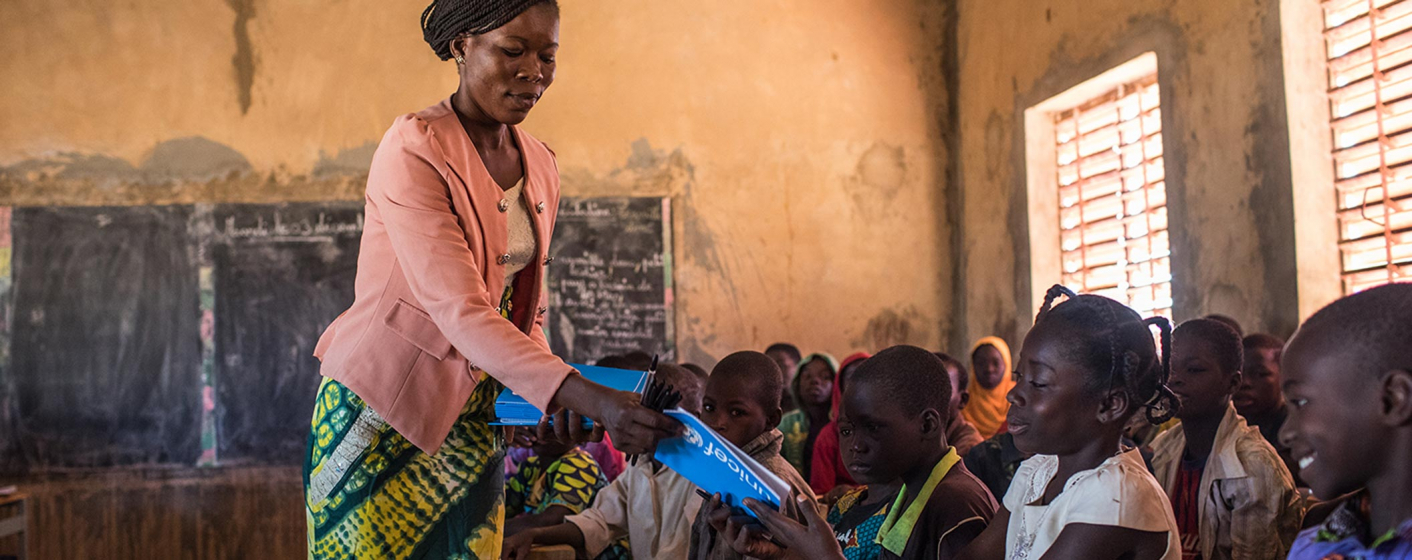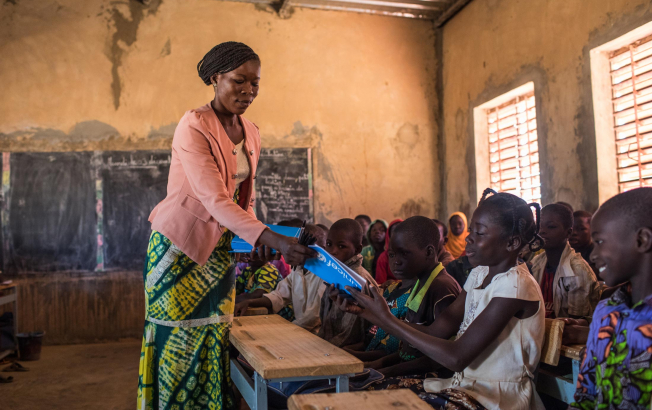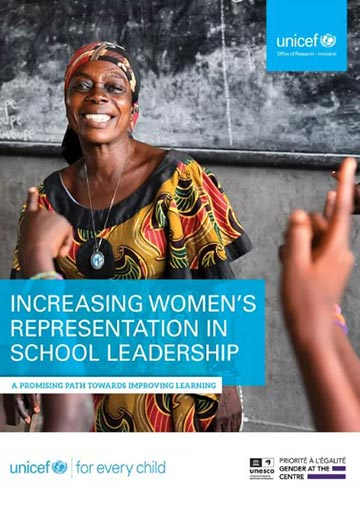Generating new knowledge on women's leadership in education
Recent studies have shown that school leaders’ management practices play an important role in learning. Evidence suggests that, in some contexts, student outcomes benefit more when schools are female-led. These findings are highlighted in a recent work published jointly by IIEP Dakar and the UNICEF Office of Research – Innocenti, which aims to bring together existing evidence on the positive impacts of female school leadership.
Recent data from six sub-Saharan African countries show that the proportion of women among primary school leaders is very low, despite the fact that in most countries there is a positive evolution of female participation in the teaching force. In Niger, where female teachers represent over half of the primary education teaching workforce, women account for only 17 per cent of primary school leaders. In Togo, Mali, Côte d’Ivoire, and Burkina Faso, only around one in 10 primary school leaders are women. On a global scale, the gap between women's participation in school leadership positions and in the labor force remains around 20 percentage points even in OECD and upper middle-income countries.
Recent research findings reviewed
The under-representation of women in leadership roles in education and other fields has been highlighted in several studies on the African continent - and beyond. Digging up the figures and findings of international research on the challenges and opportunities of female school leadership is the purpose of this piece and a whole workstream developed by IIEP Dakar in the context of the Gender at the Center Initiative.



